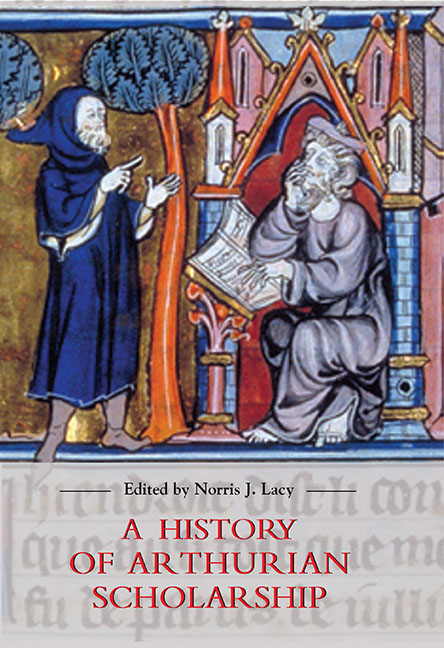Welsh Arthurian Literature
Published online by Cambridge University Press: 18 March 2023
Summary
It is tempting for a Welshman to claim the figure of Arthur as one of our own, but temptation must be debated and ultimately resisted. The figure of Arthur (whether or not the man ever existed) is attributable to the fifth–sixth centuries A.D., that apparently chaotic time following the end of Roman control, before the emergence of the term ‘Cymry’ to describe part of the island and its inhabitants, known to Saxon invaders as ‘Welsh’ (= ‘foreigners’!). The people of the southern part of the island of Britain, who long resisted attacks from all directions with varying degrees of success, clung to their ‘British’ identity into the twelfth century. They were originally united by a tongue we call British (ancestor of Welsh, Cornish and Breton), but were divided into many fluctuating political units. Arthur, whether real or mythical, is in origin a British concept, as the Arthurian placenames and traditions that range across the island from Edinburgh to Cornwall clearly show. Both geographically and chronologically, therefore, Arthur is ‘British’ rather than ‘Welsh’. There is however a certain validity in considering the early literary figure of Arthur as Welsh, since the early vernacular literature about him survived only in Wales and in the Welsh language; the other British-speaking areas of the island left no separate early literature. Even older than the vernacular literature is the Historia Brittonum, an extraordinary Latin text containing early Arthurian material, notably the Twelve Battles and the ‘Wonders of Britain’; this too is of Welsh origin.
The surviving Welsh and Welsh-Latin material, excluding the work of Geoffrey of Monmouth, would fill only one volume of print, but it includes the earliest Arthurian tale and the earliest Arthurian poetry in any language. It can be summarised as consisting of five prose tales, a number of prose triads (see below) and a scattering of poems. The prose tales are Culhwch and Olwen, Rhonabwy's Dream, Geraint son of Erbin, Owain (sometimes known as The Lady of the Fountain) and Peredur son of Efrawg. They survive in two major manuscripts of the thirteenth–fourteenth centuries, the White Book of Rhydderch at the National Library of Wales, Aberystwyth, and the Red Book of Hergest at the Bodleian Library, Oxford.
- Type
- Chapter
- Information
- A History of Arthurian Scholarship , pp. 77 - 94Publisher: Boydell & BrewerPrint publication year: 2006



